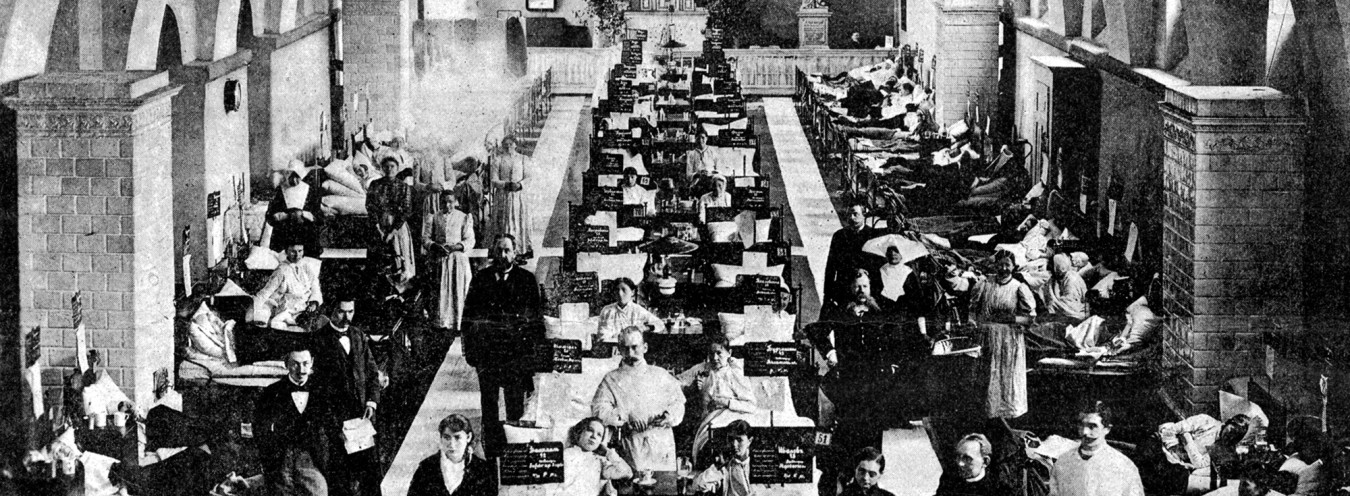
Orphanages
Imagine how fortunate my orphanage has been! Yesterday in the celebrated Wokulski’s shop, I alluded to a small donation for the orphans. I hoped for ten roubles or so, but he – believe it or not! – gave me a thousand, one thousand roubles. (46)
[Figure courtesy of Warsaw Public Library – Central Library of the Masovian Province]
As philanthropic education institutions, orphanages were an early combination of children’s shelters and day-care centers. They looked after 3- to 7-year-olds from the poorest and working-class backgrounds who were not given proper care by their family during daytime hours. The idea of founding orphanages in the Duchy of Warsaw was originated by Teofil Janikowski, a Warsaw tradesman and member of the Warsaw Charity Society. The year 1838 saw the emergence of the Society’s Orphanage Department, renamed the Department for Orphaned and Poor Children four years later.
The first orphanage was officially inaugurated in the Society’s seat in Krakowskie Przedmieście on 3 August 1839. By 1870, as many as 32 such centres were opened throughout the Kingdom of Poland, including 16 in Warsaw alone. Seventeen years later, Warsaw boasted 26 orphanages. They were financed by contributions from the Society’s members, nominal fees paid by children’s parents, and – for the most part – from donations by private individuals. In the novel, one of such donors (and a very generous one) is Wokulski, who contributes not only money but also material goods such as rolls of linen for the Warsaw orphanage supervised by the proud Countess Karolowa.
Similar institutions were established in the countryside. In his 1842 treatise titled O ochronach wiejskich (On Rural Orphanages), August Cieszkowski argues that it is high time to take care of peasant children, who spend the grey morning of their life with only cows, pigs and geese as companions. In The Doll, Duchess Zasławska runs a special refuge for some thirty of [farm children], all washed and cared for like little princes.
→ Charity; → The Charitable Society; → The Poor;
Bibliografia
- Z. Podgórska-Klawe, Warszawskie Towarzystwo Dobroczynności i jego Wydział Sierot i Ubogich Dzieci 1814-1914, “Studia Warszawskie” 1970, vol. 6, no. 1.
- E. Mazur, Dobroczynność w Warszawie XIX wieku, Warsaw 1999.
- H. Markiewiczowa, Działalność opiekuńczo-wychowawcza Warszawskiego Towarzystwa Dobroczynności 1814-1914, Warsaw 2002.


